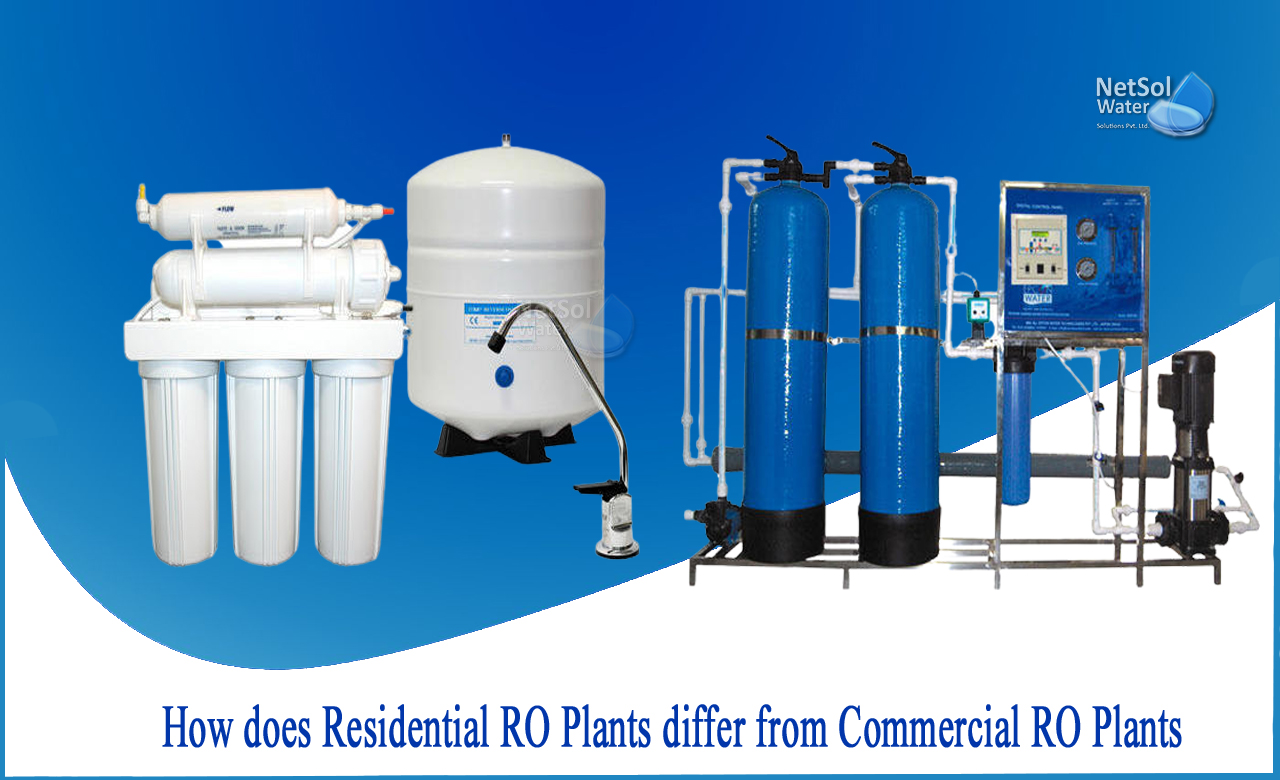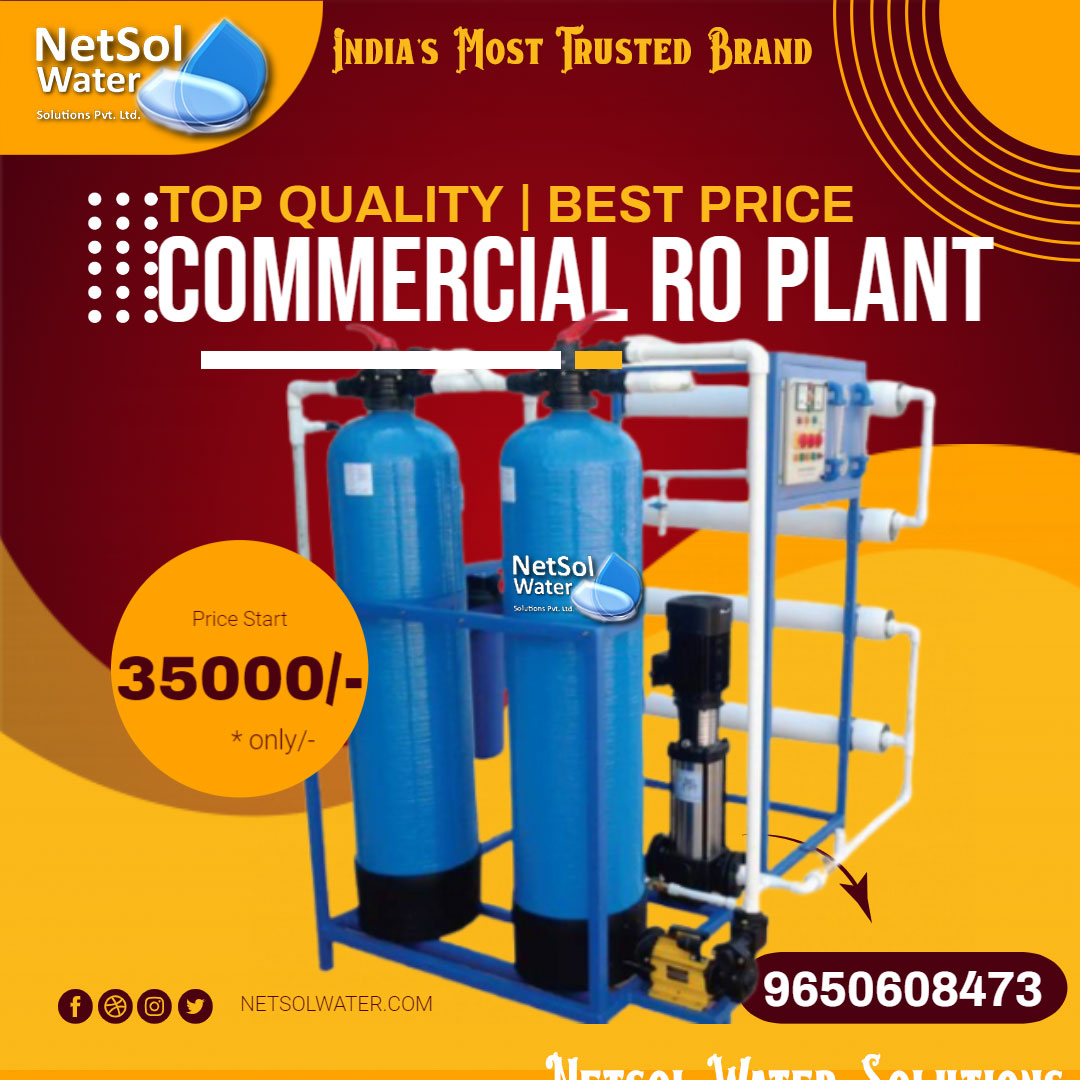How does Residential RO Plants differ from Commercial RO Plants?
What are Residential RO Plants?
Reverse Osmosis is a popular method of cleaning water in homes nowadays. This method, which purifies water by eliminating salts and ions, has grown in popularity in many residential communities. Water purifying equipment that employs reverse osmosis technology to purify drinking water can be found in both individual homes and residential communities.
Benefits of Residential RO Plants
1: Gets rid of hard water: Hard water in residential locations corrodes all geysers, pressure cookers, water vessels, pipes, and so on. This further reduces the quality of washing in machines, increases detergent use, and inhibits soap from lathering while taking a bath or washing dishes. This also results in bad cooking and taints the taste of numerous cuisines, as well as a failure to quench hunger. Softeners play a significant role in such instances since they can be installed in big centrally installed systems, which can then be connected to smaller RO units to give soft water to the entire residential society.
2: TDS (total dissolved solids) elimination: RO in a residential system eliminates 90-95 percent of the TDS from water. Because hard water cannot be directly put into RO systems, TDS must be removed.
3: R.O. installation cost: A residential RO unit costs between Rs. 10,000 and Rs. 20,000 and has a life expectancy of 1.5 years. These massive systems are typically deployed in societies of 75-100 apartments. Before installing the RO Plant, the water in the region is tested separately.
What are Commercial RO Plants?
Commercial RO Plant is a water purification technique that aids in the separation of dissolved pollutants and hazardous substances, resulting in only clean water. This facility contributes to the production of clean drinking water on a wide scale and minimizes the danger of water-borne infections. It employs a membrane to force water through, to make it more pure and safe for drinking or other purposes throughout the water treatment process.
Benefits of Commercial RO Plants
Commercial RO plants eliminate excess pollutants that can harm both humans and equipment’s. It goes from 50 to 10000 litres per hour. It is used for the following purposes, depending on the technique:
1: Purifies water on a bigger scale.
2: Maintains water TDS in accordance with rules.
3: Eliminates chemicals and other dissolved substances from water.
4: Reduces the likelihood of waterborne diseases.
5: Assist water bottle start-ups.
6: Increases water reusability by cleaning wastewater repeatedly.
What is the distinction between Commercial RO and Residential RO?
|
|
Residential RO Plant |
Commercial RO Plant |
|
Installation |
Installed at a lower and more constrained level |
Installed at a higher level |
|
Goal |
To purify the water, to provide the fresh water for the families |
To purify the water for the whole sector |
|
Usage |
Fulfilsthe requirements of a smaller group of people |
Fulfils the requirements of a larger group of people, such as huge corporations, and so on |
|
Benefits |
· Drinking water that is safer · Shower water becomes better · Beneficial for skin and hair · Beneficial for the health especially for, old people, pregnant women, small children · Nourishing food · It safeguards the appliances · Low-cost and effective
|
|
|
Example |
Individual Houses |
Schools, Colleges, Malls, Offices, Apartments, Societies, Caravan Parks, Camps, and much more. |
What do we offer?
Netsol Water is a renowned producer of water and wastewater treatment plants. We have a reputation for being the Top Commercial RO plant manufacturer, Industrial RO Plant manufacturer, sewage treatment plant manufacturer, and effluent treatment plant manufacturer in India. Aside from that, our USP is 24x7 customer assistance.




